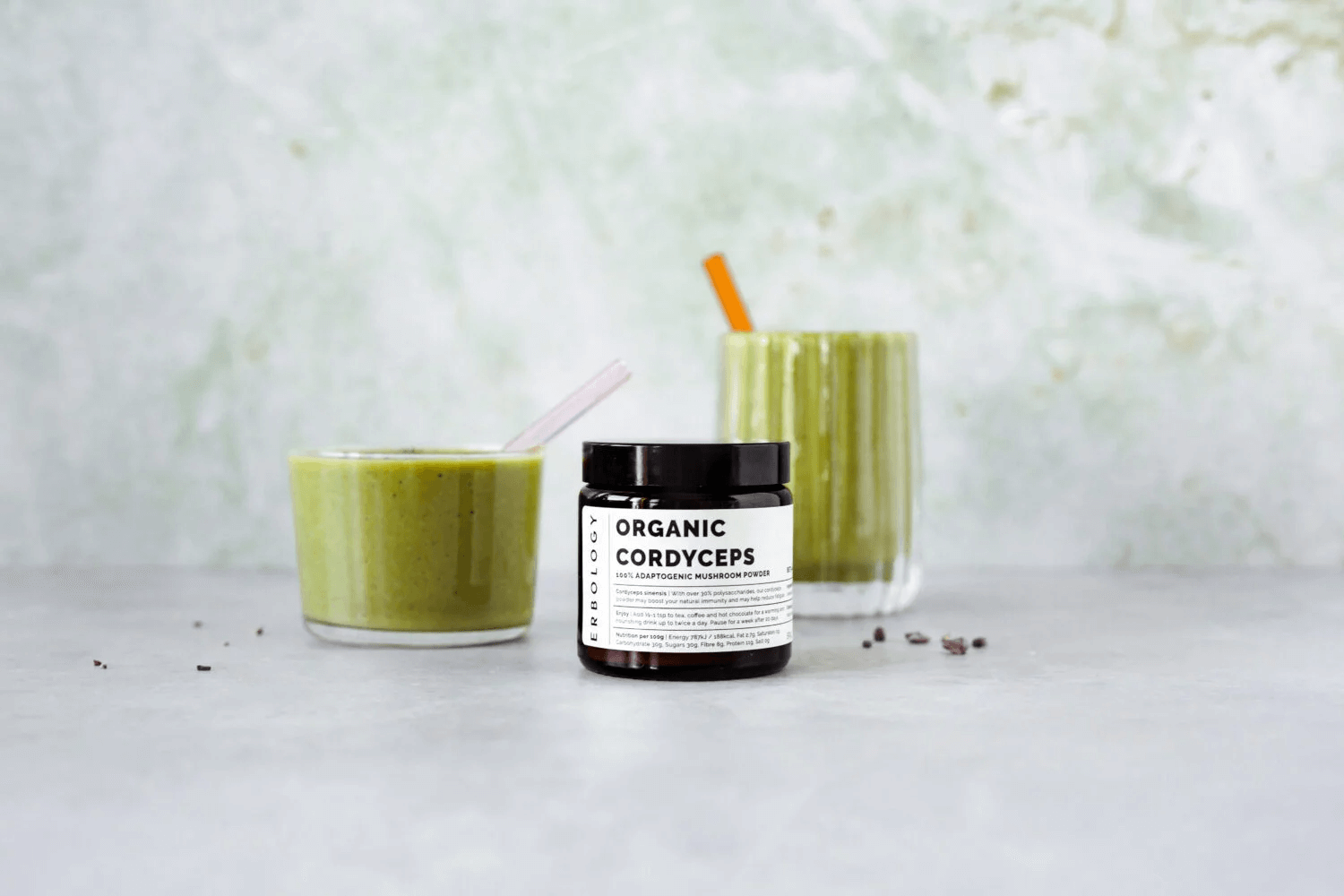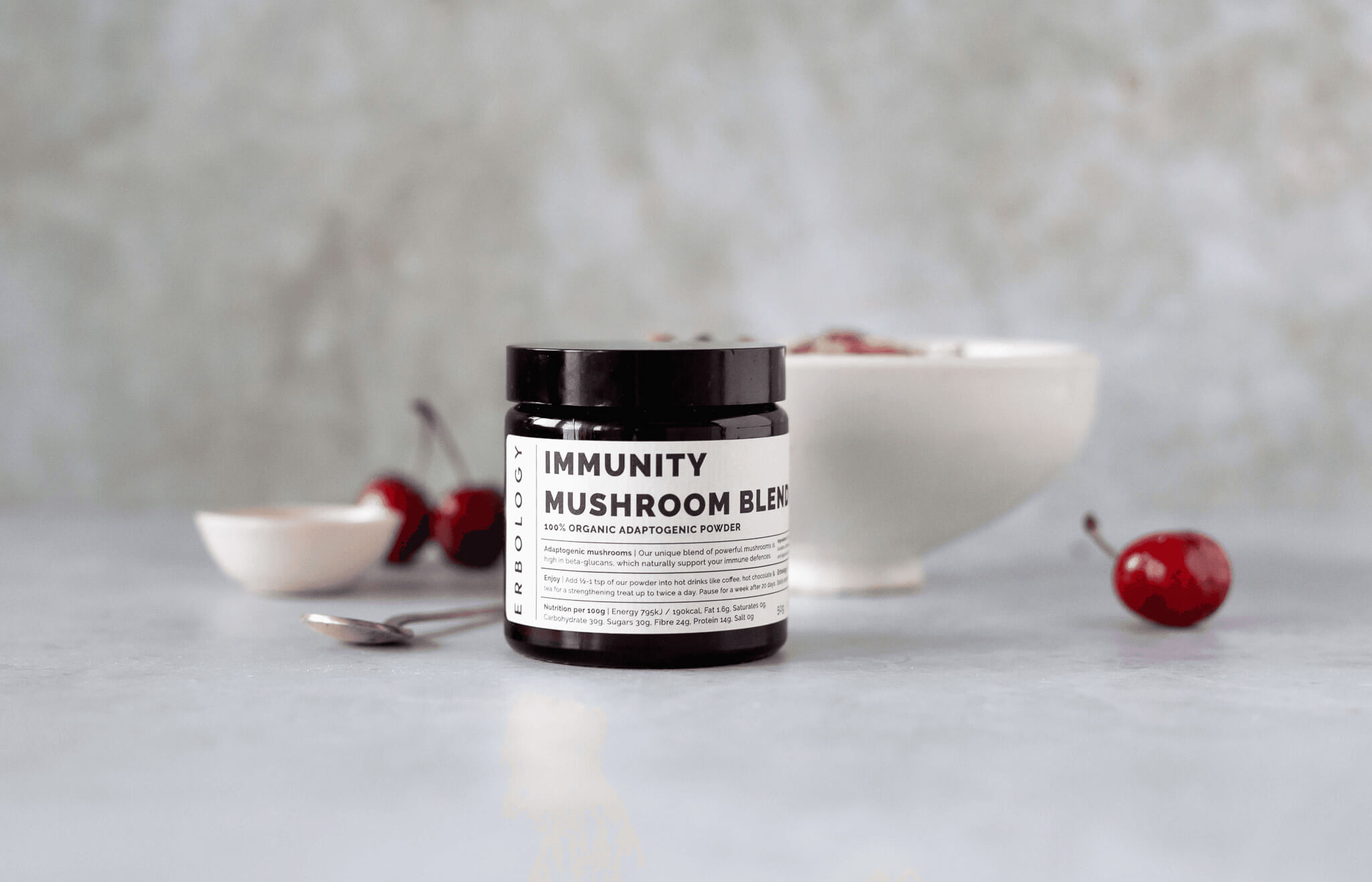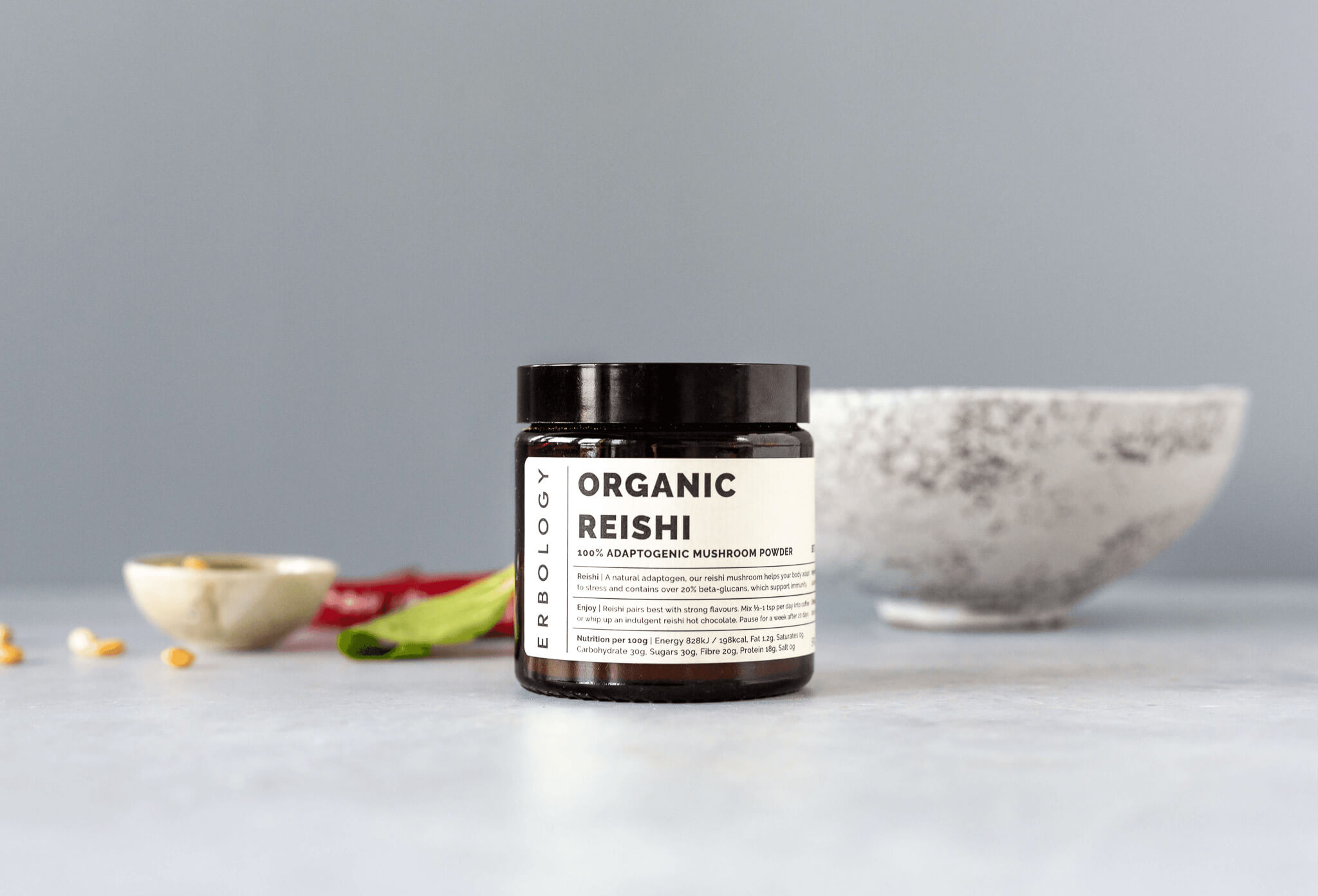07 Jun 2020
What are adaptogens and their health benefits?
What is an adaptogen?
A Russian scientist, Lazarev, coined the word 'adaptogen' in the 1950s. The term brings together plants and herbs that have been used medically for many, many thousands of years. However, they never really got the recognition they deserve in the West - until recently.
In short, an adaptogen is a compound which can intervene in the stress reaction and alter it.(1)
However, there are a few more criteria that a plant must meet in order to be called an adaptogen.
- Firstly, adaptogens must work in a general way, rather than acting only on specific symptoms. In other words, they must be able to help ward off stress from any type of source. This includes environmental stress, physical illness, unhealthiness and even emotional stress caused by interaction with others.
- Secondly, adaptogens must be able to help people get back into 'balance', or retain your sense of healthy equilibrium.
- Lastly, adaptogens must not affect or disrupt the other functions of our bodies.
The definition has since been altered and sometimes expanded. However, these are the characteristics which are central to adaptogen classification.
How do adaptogens work?
The human body reacts to stressors by first raising an alarm. This sets off a hormone called cortisol.
Let's say you've just heard a piece of alarming news: your department at work is making cuts.
Cortisol prompts the fight-or-flight response and other related responses. These include increasing your heart rate and blood pressure; you're feeling panicked that your job might be on the line.
Next comes the 'resistance' stage. It continues to fight off stress for a prolonged period. During this stage, you might be trying to remedy the source of your stress. For example, you might try to find out more about the job cuts in your department, start looking for other jobs, or speaking to your manager.
If you can't find a resolution to the issue, your body keep on in the resistance stage for a long period of time, and the cortisol keeps coming. This can be harmful if it continues for too long.
That's when the exhaustion stage kicks in. This is just what it sounds like. Your immune system suffers. You are left without energy. In our job-related example, this is the point at which flop onto the sofa at home, feeling more upset and helpless than anxious about the job cuts.
In serious situations, depression and anxiety may come into play.
Adaptogens and stress
Stress is normal and necessary. However, we live in chaotic times. Our bodies experience increased stress.
This stress may come from situations which we struggle to adapt to emotionally and mentally.
However, there are also physical stressors in our environment, such as toxins from pollution, cigarette smoke, and even in our food. While they might not cause you to feel stress, they put stress on important bodily functions.
When physical and emotional stress become too much, we can lapse into a state of semi-permanent exhaustion. We feel rubbish, our immune defences are down and we're tired all the time. In common parlance, we're really stressed out.
Adaptogens can help increase our resistance. They work by decreasing the severity of our initial 'panic' response, and lengthening the amount of time we can stay in the resistance stage. In short, they help us deal more calmly with situations of stress.
Related reading
What is immunity and how your immune system works
Gut health: How gut microbiome impacts mental wellbeing
Where do adaptogens come from?
Ayurvedic and Chinese healing has long featured adaptogens. Fascinatingly, many of the plants that give us adaptogenic substances are tough survivors themselves.
For example, ashwagandha is an important adaptogen which stands up to drought and lives in areas where the soil is often bone-dry and without nutrients. Other plants would struggle to survive. However, ashwagandha is more resilient than most; a quality it passes on to people who take it!
What's the scientific evidence for adaptogens?
There has been some research into adaptogens. However, as with so many traditional or herbal remedies, they haven't yet got the attention that conventional drugs have. The studies we do have need to be backed up with more research, conducted in a scientifically rigorous way.
That said, there is increasing scientific interest in these traditional remedies. For instance, the World Health Organisation has approved the use of traditional medicines to support immunity and treat various diseases.
More and more scientists are currently investigating adaptogens. We'll discuss the evidence we have as we look at each different type of adaptogen. The best type of adaptogen for you will of course depend on the symptoms you want to target.
Adaptogens for short term stress and anxiety
A study looked into the effects of Siberian ginseng, rhodiola, and schisandra on short-term stress and anxiety.(1) All three have a "beneficial stress-protective effect" at the molecular level.
Moreover, all seem to help regulate homeostasis. This means they restore the natural equilibrium of the body.
In addition, these herbs appear to support focus and stamina in situations where stress-related fatigue kicked in. Long-term disorders triggered by stress were also reduced.
A systematic review of research into rhodiola (also called golden root) found that a majority of the studies supported the positive effects of rhodiola on mental fatigue. However, a lack of accurate measurements for fatigue in two of the studies meant that these findings were inconclusive.(2) In still another study, participants exhibited a significant decrease in professional burnout symptoms after taking rhodiola.(3)
Rhodiola isn't a new discovery. In fact, Russian scientists were investigating it back in the 1970s, in the hope that it would help soldiers stand up to brutally cold temperatures and exhaustion. They also thought that rhodiola might benefit athletes headed for the Olympics. Sadly, the results have been lost; we can't help but wonder what they were, given that this application of adaptogens would still be incredibly useful today.
Adaptogens for immunity
Reishi mushrooms seem to impact white blood cells in diverse ways. White blood cells are central to the immune system, helping to combat disease and infection.(4)
Another type of mushroom, shiitake, also provides a powerful boost for your immunity. For instance, a study indicated that eating two dried shiitake daily contributed to a drop in inflammation and improved immunity.(5)
Why are mushrooms so good for immunity? It could be down to a special polysaccharide found in the cell walls of certain fungi, called beta-glucans. One of their many positive effects on our health is their ability to modulate our immune system.(6)
The mushroom family is such a great source of adaptogens that we've written a special Erbology guide to medicinal mushrooms where you can find out about the different mushrooms and their effects. Alternatively, you can also take the hard work out of investigating immunity-boosting mushrooms by opting for our Immunity Blend powder, which features eight powerful 'shrooms.
Aside from mushrooms, the traditional Ayurvedic preparation of triphala also supports immunity.
Triphala is a mixture of Indian gooseberry, chebulic myrobalan, and beleric myrobalan. All of these ingredients are also immunomodulatory on their own. Together, they make a powerful trio to protect your immunity.
undefined

Organic Cordyceps Mushroom Powder

Organic Immunity Mushroom Powder

Organic Lion's Mane Mushroom Powder
